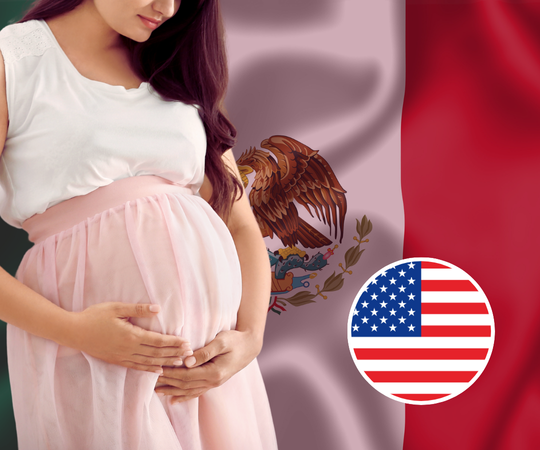In the world of fertility treatments, few advancements have had as profound an impact as In Vitro Fertilization (IVF). Since the birth of Louise Brown, the first IVF baby, in 1978, this remarkable scientific breakthrough has provided hope and the possibility of parenthood to millions of couples worldwide. As we celebrate IVF Day, we honour the tireless efforts of scientists and doctors, and the resilience and strength of those on the journey to parenthood.
The Science Behind IVF: More Than Meets the Eye
IVF is a process where an egg and sperm are combined outside the body in a laboratory dish. Once fertilization occurs, the resulting embryo is then transferred to the woman’s uterus, where it can implant and develop into a pregnancy. While this is the basic process, there’s so much more happening behind the scenes.
- Cryopreservation: Did you know that embryos and even sperm and eggs can be frozen and stored for future use? This technology allows for multiple attempts at pregnancy from a single cycle of IVF, offering a safety net for those undergoing treatment.
- Preimplantation Genetic Testing (PGT): Before transferring embryos, PGT can screen for genetic abnormalities, ensuring that only the healthiest embryos are chosen. This can significantly increase the chances of a successful pregnancy and reduce the risk of genetic disorders.
- Time-Lapse Imaging: Advanced incubators now use time-lapse imaging to monitor embryo development, providing continuous observation without disturbing the embryos. This technology gives embryologists critical insights into embryo growth, improving selection processes.
Breaking the Myths: What You Might Not Know About IVF
IVF is often shrouded in misconceptions. Here are some facts that might surprise you:
IVF Success Rates: While success rates can vary, advancements in technology and techniques have significantly improved outcomes. Factors such as age, health conditions, and lifestyle choices all play a role, but many couples find success after one or more cycles. According to IVF Australia, fresh embryo transfers in patients under 30 years resulted in 55% clinical pregnancy and 50% lead to a live birth in 2022.
| Age | Clinical Pregnancy | Live Births |
| Under 30 | 55% | 50% |
| 30 – 34 | 43% | 37% |
| 35 – 39 | 36% | 29% |
| 40 – 42 | 26% | 15% |
| Over 42 | 12% | 7% |
Moreover, frozen embryo transfers with PGT resulted in 69% clinical pregnancy and 60% live births among patients under 30 years.
Understanding these statistics not only sheds light on the IVF process but also empowers couples to make informed decisions about their fertility journey. With a clearer perspective on success rates and factors influencing outcomes, it’s essential to explore the emotional and practical aspects of undergoing IVF.
Emotional Support is Crucial: The emotional journey of IVF is as significant as the physical one. Many clinics now offer counselling and support groups, recognizing that mental well-being is vital for those undergoing treatment.
Male Factor Infertility: It’s not just about the woman’s reproductive health. In nearly half of all infertility cases, male factors are a contributing cause. IVF, combined with Intracytoplasmic Sperm Injection (ICSI), where a single sperm is injected directly into an egg, can help overcome many male infertility issues.
Looking to the Future
As we celebrate IVF Day, we also look to the future with hope and excitement. Ongoing research continues to push the boundaries of what’s possible, from improving success rates to making treatments more accessible and affordable.
Every year, new advancements bring us closer to making the dream of parenthood a reality for even more families. IVF is not just a medical procedure; it is a beacon of hope, a testament to scientific innovation, and a powerful reminder that where there is love and determination, there is always a way.
Embracing the Journey: Strength, Support, and Hope
To all those embarking on their IVF journey, remember that you are not alone. The path may be challenging, but it is also filled with hope and possibility. Reach out for support, lean on your loved ones, and trust in the science that has already brought joy to so many. Happy IVF Day, and here’s to the beautiful miracles that lie ahead.


